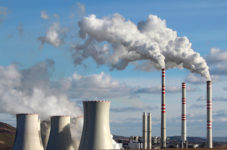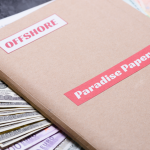Fossil Fuel Companies Dominate ‘Top Tax Dodgers’ List

As the climate change debate comes to a standstill in the echelons of leadership, despite the recent bushfire catastrophe which is not yet over, many Australians are angry and frustrated that the Federal Government remains so tied to its commitment to fossil fuels.
In fact, in a recent episode on 60 minutes, National Party MP Barnaby Joyce went so far as to admit that ‘losing the election’ was more of a primary concern for those with decision-making ability over the future environmental health of our country. Because, as Mr Joyce explained, as one of Australia’s largest exports, coal, provides much-needed revenue to fund hospitals and schools.
The reality is, in fact, otherwise. According to figures, coal exports equate to around 2% of GDP, employing 0.4 percent of the population. In comparison, small businesses collectively contribute 20% to GDP and employ about half of the Australian workforce.
The International Monetary Fund estimates that annual energy subsidies in Australia total $29 billion, representing 2.3 per cent of Australian GDP – which is more than the total value of fossil fuel exports. On a per capita basis, Australian fossil fuel subsidies amount to $1,198 per person.
The misleading political rhetoric is no surprise, given the strong links between the government and fossil fuel industry.
So, perhaps it’s also no surprise to read that on the latest list of the Top 40 tax dodgers in Australia, fossil fuel companies dominate.
The ‘tax dodgers’
One such company is US oil giant ExxonMobil Australia, which has racked up total income of $42.3 billion over the past five years of available Tax Office data. Yet it has not paid not one cent of income tax in this country.
American-owned Chevron, another oil company, also paid zero tax over five years, notwithstanding its $15.8 billion in total income.
Furthermore, five of Australia’s top coal companies – Peabody, Yancoal Sumitomo, Citic and Whitehaven – racked up $54 billion between them in total income over the past five years and paid zero income tax in Australia.
In total, 13 of the 40 companies on the list are involved in either coal, oil and gas or energy networks.
The Top 40 is based on the annual corporate tax transparency report from the Australian Tax Office. Its methodology relies not only the sheer size of revenue and the sheer absence of tax but also a metric which indicates aggressive “offshoring” of pre-tax profits.
Many multinational companies engage in numerous accounting tactics including ‘debt-loading’ to minimise their local tax obligations. This occurs when Australian businesses accept billions of dollars in loans from their overseas counterpart companies and the interest on these loans is siphoned out of the country tax free.
Effectively, these companies are intent on NOT making a profit. From an accounting perspective, they are set up to make a loss.
Accounting and tax experts say that the coal companies have been engaging in these practices for years. Thermal coal is in decline as a source of energy, and therefore coal producers are battling falling prices and rising costs. Because income tax is levied on profits, not revenues, it makes more sense for them to actually minimise profits or make a loss.
And the Australian tax regime makes this all possible, and legal.
Who pays for climate-related disaster damage?
And yet, in the meantime, prior to, and at the height of Australia’s recent national bushfire disaster, climate science experts have, time and again, warned that these fires were a direct result of changing climate patters.
So anyone can see that for the Australian ‘workers’ and the tens of thousands of small businesses across the nation – those who pay their annual tax (and are heavily penalised when they don’t), as well as as well as those who have generously put their hands in their own pockets to donate to help victims, this seems grossly unfair.
For the victims, there’s not only the devastation of losing everything, but the enormous task of re-building. And it’s already been decided that fire building codes will be strengthened in vulnerable areas. This adds to the cost of construction, while at the same time, land values fall. Local councils too, tend to raise rates in order to rebuild infrastructure. There’s often a long wait for insurance pay outs.
The Government recently announced a $2 billion bushfire recovery fund, but that money comes from the public purse. Currently, it would appear, those big corporations contributing to climate change are getting off scot free.
We need to confront the fact that many have said, we’re facing a ‘new normal’. What exactly is the community responsibility for what is, the experts agree, a climate change fuelled disaster?
A proposed fire levy
The Australia Institute is currently proposing the creation of a National Climate Disaster Fund, financed by a levy of $1 per tonne of carbon dioxide pollution resulting from all coal, gas and oil produced in Australia. The Institute’s own research has shown that such a levy would currently raise around $1.5 billion a year. It is a sensible idea that has some merit.
Right now, though, the federal government has gone quiet on the entire issue. And it remains to be seen whether or not innovative solutions to either addressing the issue of climate change or indeed how to pay for the damage of climate-related disasters are forthcoming at all.
In the meantime, it’s up to those Scott Morrison refers to as the ‘quiet’ Australians to foot the bill for political inertia and mismanagement as well as make up the tax avoidance shortfall created by large corporations that fail to contribute to our community in any meaningful way, but continue to line the pockets of their shareholders.








